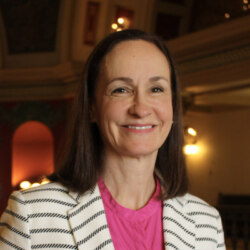Viewpoint: Honesty in Healthcare Part 3: The Need For Skepticism, Dissenting Opinions And Uncensored Conversations
"Think about what it would mean if a physician could lose his or her license due to a private discussion with a patient in an exam room for sharing a true and honest medical opinion."
Last month I wrote part 2 in this series on honesty:
The general idea is that a benevolent and prosperous society needs people of good character and that honesty is an important part of good character. Government regulations can never replace good character, and can sometimes discourage and punish it. This month I have another example of the importance of honesty to good health care and the problems that can result when honesty is not a core value.
The example is a new law in California that forbids honesty by physicians and surgeons who have dissenting or skeptical views on a medical issue. This law is limited to opinions pertaining to COVID, but I hope that readers will see beyond this particular issue and think about the broader ramifications of regulating the speech of physicians on any medical issue. State medical boards are tasked with the regulation of the practice of medicine and can take away a physician’s ability to practice medicine for “unprofessional conduct.” Typically, unprofessional conduct has included things such as substance abuse and sexual misconduct. Here is text from the actual California bill: “This bill would designate the dissemination of misinformation or disinformation related to the SARS-CoV-2 coronavirus, or ‘COVID-19,’ as unprofessional conduct.”
In other words, having a medical opinion that doesn’t conform to peer pressure has now been redefined as unprofessional conduct, greatly broadening the definition. It’s a terrible precedent, and is believed to be the first of its kind in the nation.
Traditionally, questioning and skepticism lie at the center of science and good medicine. What is and isn’t “disinformation” is very much subject to opinion. Good medical conferences are full of debate and dissenting opinions! The best doctors often share information on the current controversies with their patients. Many of the items in this California law that are stated upfront as facts are not even uniformly accepted by physicians. Think about what it would mean if a physician could lose his or her license due to a private discussion with a patient in an exam room for sharing a true and honest medical opinion. One result is that physicians can no longer trust their patients, and another is that patients can’t trust their physicians. Honesty is not a core value here. Patients will only be able to see “party line” doctors. The law is being challenged in court, and the lead plaintiff, an MD, states: “Physicians will find themselves in a very difficult position of needing to choose between saying what they truly believe, saying what they think the medical board wants them to say, or simply staying silent. This law will have a poisonous effect on the doctor-patient relationship by diminishing patients’ trust in their doctors and by disincentivizing full honesty from doctors, making their job of caring for patients to the best of their ability even more challenging.”
In my next article in this series on honesty in healthcare, I will look at some things in healthcare that are deceptive, if not outright dishonest, and possibly some truisms that aren’t really true.
Healthcare Viewpoints is a monthly series featuring original columns from Montana healthcare leaders focused on addressing the challenges presented by our broken healthcare system. The opinions of guest authors do not necessarily represent the policy positions of the Frontier Institute.
